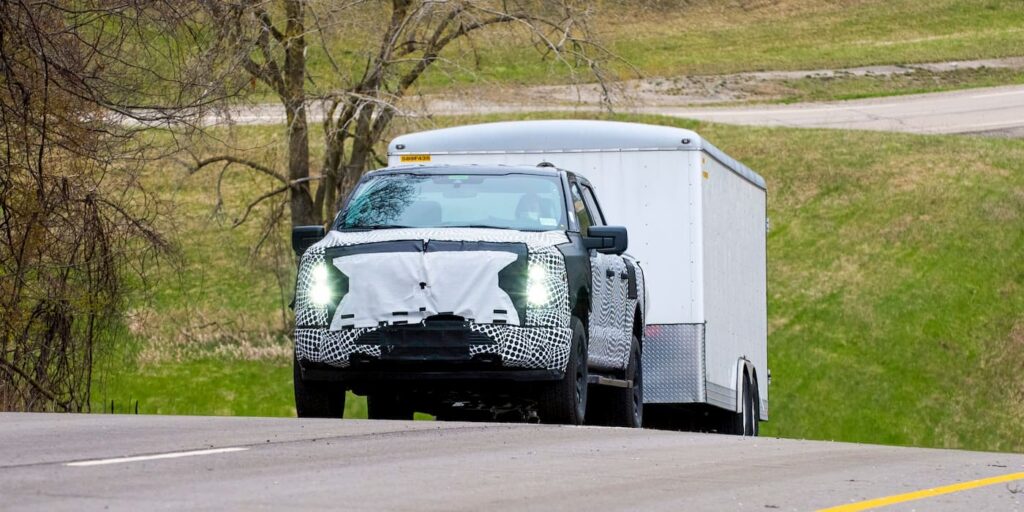
Ford has postponed the production of its upcoming electric pickup, known as “Project T3,” pushing back the timeline to 2028. Initially slated for production at the company’s BlueOval City EV assembly plant in Tennessee, this delay signifies a shift in priorities as Ford aims to concentrate on developing lower-cost electric vehicles (EVs). The announcement, made on Thursday, follows a previous delay from 2026 to 2027, and reflects ongoing adjustments in response to market demands.
According to Automotive News, Ford has notified suppliers of the new timeline for the electric pickup. The company is also delaying the production of its next-generation E-Transit electric van, which will now begin in Ohio in 2028 instead of the previously planned 2026. A spokesperson for Ford stated that the F-150 Lightning, which is currently the best-selling electric truck in the United States, along with the E-Transit, continues to meet customer needs.
Ford’s strategic pivot comes as the company focuses on smaller, more affordable EVs. Earlier this week, Ford opened its new EV Design Center in Long Beach, California. This facility will support the development of a new, efficient low-cost EV platform. The team, led by former Tesla engineer Alan Clarke, comprises talent from various companies, including Rivian, Lucid, and Apple.
In line with its efforts to minimize costs, Ford plans to utilize lithium iron phosphate (LFP) batteries, which will be manufactured at a new plant in Michigan using technology licensed from China’s CATL. This approach mirrors a recent announcement from General Motors, which will also employ LFP batteries for its upcoming Chevy Bolt EV.
According to Lisa Drake, Ford’s Vice President of Tech Platform Programs and EV Systems, the new midsize platform is designed to accommodate eight different body styles, including trucks, crossovers, SUVs, and potentially sedans. On August 5, Ford filed a trademark for the name “Ranchero,” suggesting a possible revival of this nameplate for the new midsize electric pickup.
CEO Jim Farley emphasized that Ford aims to match the pricing of leading Chinese EV brands. He noted during a recent earnings call that the company is transitioning from being a dominant player in truck hybrids to offering a range of electric range-extended vehicles (EREVs) and plug-in hybrid electric vehicles (PHEVs). Farley remarked, “We believe this is a better direction than focusing on $60,000 to $70,000 all-electric crossovers. Our research indicates that this aligns with what customers will want in the long term.”
As Ford prepares for further announcements, including details about its plans to design and build a breakthrough electric vehicle, anticipation remains high. The company is scheduled to provide additional insights on August 11.
This strategic realignment reflects Ford’s commitment to adapting to evolving market conditions while aiming for improved profitability and customer satisfaction in the rapidly changing landscape of electric vehicles.






